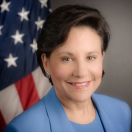
Today, I led the first meeting of the President’s Advisory Council on Doing Business in Africa. This Council is part of the Administration’s effort to write the next paragraphs in what President Obama called a “new chapter in U.S.-Africa relations.”
Today’s gathering was intended to build on what was started at the historic U.S.-Africa Business Forum last August, when U.S. firms announced more than 14 billion worth of investments in African markets.
We want to see that kind of economic engagement continue, which is why I was honored that the President asked me to establish this Council – to ensure that the private sector’s perspective is factored into our policy making.
The Council’s job is to advise the Department of Commerce and the Obama administration on how to expand trade and investment opportunities for U.S. firms in Africa and create opportunities for African companies that want to do business in America.
To meet this charge, the Council has focused on three key areas.
First is mobilizing capital, because robust capital markets are essential for any nation to attract long-term investment. The Commerce Department will soon launch an investor road show to provide U.S. financial firms and exporters with the opportunity to hear directly from African governments about their investment climates and specific infrastructure projects and to assess and address real market risks.
Second is improving supply chain efficiency. Ensuring quick and easy movement of imports and exports can help reduce cost, increase efficiency of trade, and boost government revenues.
Third is infrastructure. American companies have experience and expertise in developing infrastructure, but at the Commerce Department, we have heard repeatedly from U.S. companies about the challenge of competing on a level playing field with foreign firms to win major infrastructure projects. The Council has recommended the creation of a U.S.-Africa Infrastructure Center to identify, vet, and prioritize African infrastructure projects – which is a great start and will help change the dynamic.
The Department of Commerce has solutions. We have data. We have market expertise. And we have great people. Our Foreign Commercial Service has a full range of tools and services at your disposal, including staff on the ground to help U.S. companies succeed in Africa. We would like your ideas on how to get the word out.
We had robust discussions about all of these issues during today’s meeting, and I am confident that we can make great progress in the coming months and years. I look forward to continuing to work with the Council to make doing business in Africa easier for U.S. companies – and to keep America and Africa open for business together.


